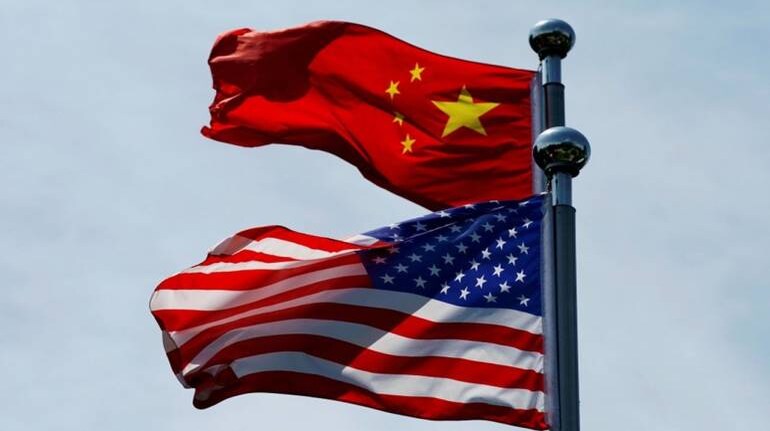



America’s attempt to keep China unsettled on the Taiwan issue with a proposed visit of Nancy Pelosi to the controversial island, has not gone according to the script.
A strong response from China to counteract has forced the White House to pushback against the House Speaker’s plan. President Joe Biden said the US military thinks her visit was not a ‘good idea right now’, clearly trying to salvage the situation and diffuse the rising tension.
In recent years Biden has pushed the US’ ‘strategic ambiguity’ on Taiwan a few times forcing observers to speculate whether his remarks were deliberate or a ‘gaffe.’ But each time it roiled China and strained not only Sino-American relations but also worsened China and Taiwan ties.
Pelosi and her delegation are scheduled to visit a number of countries in August including Indonesia, Japan, Malaysia, Singapore and Hawaii, headquarters of the US Indo-Pacific command. But her visit to Taiwan was not officially announced, ostensibly because of security reasons, though it was widely reported in the media.
Her proposed visit to the island also came in the wake of reports about a potential $108 million worth arms sale from the US to Taiwan under the military-technical assistance between the two sides.
China has asked the US to cancel the arms sale and warned if the House Speaker went ahead with the visit to Taiwan, Beijing will ‘resolutely respond and counteract’.
Pelosi’s trip has raised serious concern in Taiwan which now finds itself in a tight spot because of the ensuing controversy. If she decides to go ahead with the visit, China’s wrath will fall on Taiwan. On the other hand, if it gets cancelled it will embolden China to meddle more robustly on US-Taiwan relations.
Additionally, the US decision to backtrack, will deter future high-level visits to Taiwan not only from America but also other countries.
Since the rapprochement began in US-China relations with American President Richard Nixon’s 1972 visit to the mainland, Washington has diluted its relations with Taiwan. After establishing diplomatic relations with Beijing and agreeing to the ‘One-China’ policy that makes Taiwan a province of the People’s Republic of China and not an independent country — a status which it enjoyed earlier.
However, under the Taiwan Relations Act of 1979, the US has maintained substantial but non-diplomatic relations with Taiwan. Over the years, the US developed a “strategic ambiguity” in dealing with both China and Taiwan. This policy allowed US to supply enough arms to the island to defend itself in the event of a Chinese attack without specifically stating whether America will get militarily involved to defend Taiwan.
This ambiguity was deliberately maintained and pursued by most US presidents until recently, to prevent China from taking Taiwan by force and discouraged political parties in Taiwan to demand independence from the PRC.
However, as China has now replaced Russia as America’s main adversary, policy planners in the US have also started to re-think their Taiwan policy. In December 2016 when Donald Trump was US President he called Tsai Ing-wen, the president-elect of Taiwan, breaking with US policy to not have direct diplomatic contact with elected leaders of the island.
Since coming to power, Biden has also kept the Taiwan pot boiling. During a town hall interaction in 2021, Biden was asked if the US will come to Taiwan’s rescue if attacked by China when he had said “yes” pointing out it was the US policy.
While his aides had rushed to explain that there was no shift from the “strategic ambiguity” US has maintained for years, Biden again repeated the position during a visit to Japan in May during a press interaction. Since Biden had ruled out US military involvement in Ukraine against Russia, he was asked if the US will get militarily involved to defend Taiwan. “Yes, that is the commitment we made,” the American President had said.
But senior officials in the Biden Administration tried to explain that US policy has remained unchanged and the President had only reiterated US’ commitment to provide Taiwan with “military means to defend itself.”
However, in the strategic community his comments were seen as a shift and an indication of the US getting involved to defend Taiwan militarily.
Interestingly, a survey in Taiwan this April has found that most people in the country felt that the US will not come to its rescue if China attacked it. The survey results conducted by the Taiwanese Public Opinion Foundation said the view that America will not send its troops to defend Taiwan has doubled since the Ukraine war.
The decision to hold back Pelosi’s visit by Washington has also led to suspicion that the US was now keen to engage with China at the highest political level to normalise trade relations that had suffered from the pandemic and the Ukraine war.
There is speculation that a telephone conversation between Biden and the Chinese President Xi Jinping may soon take place to improve trade relations. In such an event, Washington will try not to spoil the atmosphere with a visit by the House Speaker and angering China.
But whichever direction Sino-US relations may take in the coming days, Taiwan is likely to be the loser.
Discover the latest Business News, Sensex, and Nifty updates. Obtain Personal Finance insights, tax queries, and expert opinions on Moneycontrol or download the Moneycontrol App to stay updated!
Find the best of Al News in one place, specially curated for you every weekend.
Stay on top of the latest tech trends and biggest startup news.